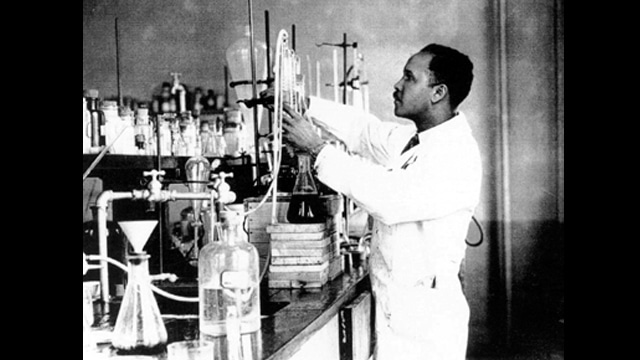On this day in Alabama history: Chemist Percy Julian honored in PBS special

Percy Julian at work as a research associate at the Minshall Laboratory at DePauw University in the 1930s. Julian's work in the lab involved the calabar bean and physostigmine; his later lab work resulted in advances in the production of steroids, sex hormones, and cortisone, among other things. (From Encyclopedia of Alabama, courtesy of The Birmingham News)
February 6, 2007
PBS aired a 2-hour special in honor of Percy Lavon Julian, an internationally acclaimed synthetic organic chemist, as part of a series including Galileo, Sir Isaac Newton and Albert Einstein. A native of Montgomery, Julian attended segregated public schools for only eight years – the maximum allowed to black students – but eventually became the third African-American in history to receive a Ph.D. in chemistry. His research in the field of natural products chemistry resulted in more than 160 publications and 100 patents, including accomplishments in the synthesis of steroids and sex hormones and the production of commercially viable amounts of cortisone. He was inducted into the National Academy of Sciences and the National Inventors Hall of Fame.
Read more at Encyclopedia of Alabama.

For more on Alabama’s Bicentennial, visit Alabama 200.






